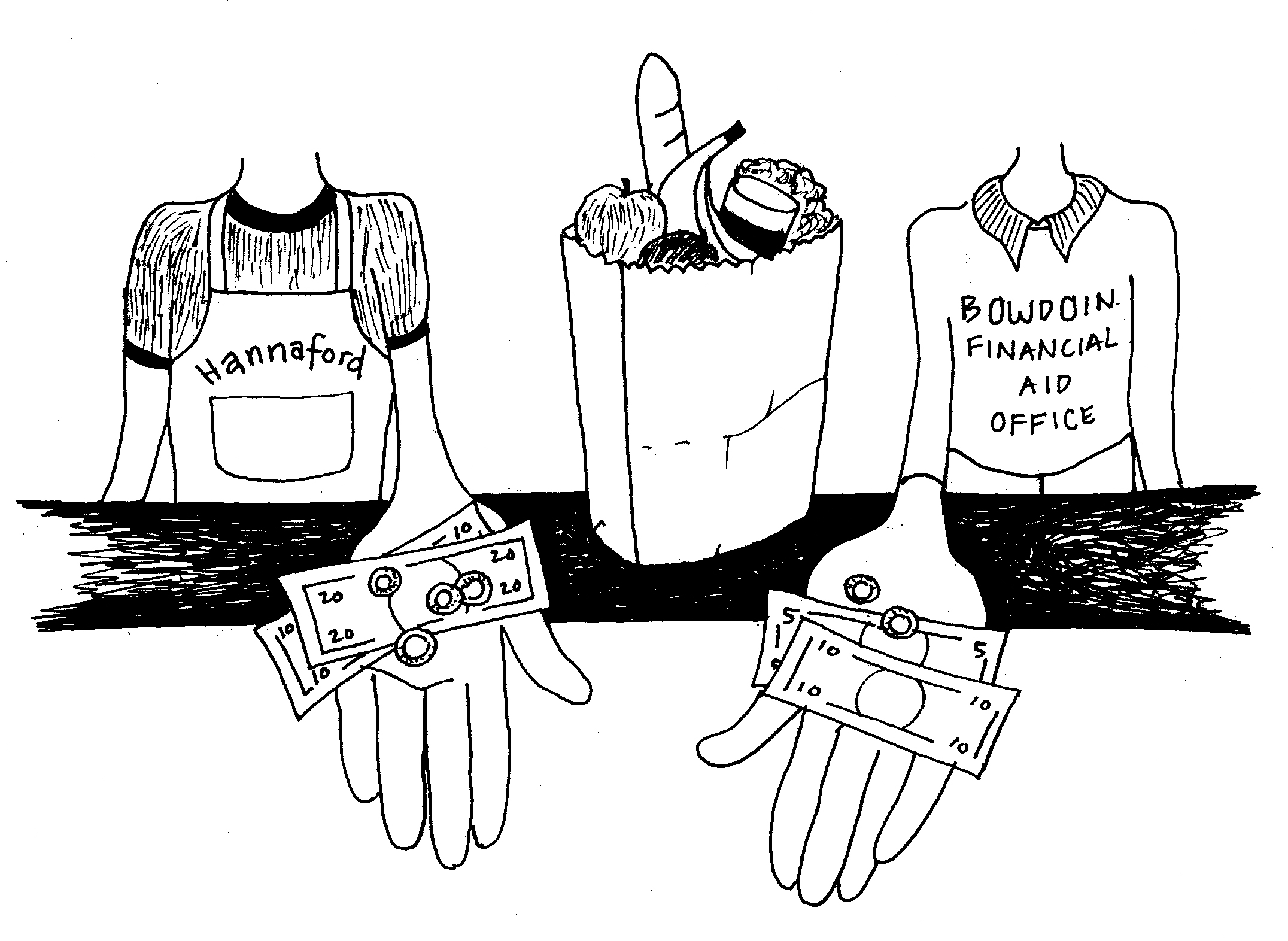Subsidize food for students on financial aid with limited meal plan options
March 31, 2017
 This
piece represents the opinion of the author
.
This
piece represents the opinion of the author
.
The high quality of our dining hall food is, of course, well known to the entire Bowdoin community. But eating on campus, just as obviously, is not everyone’s preferred option. Especially for those living in campus-provided housing with kitchens or those living off campus, it does not necessarily make sense to pay for the 19-meal, highest-level plan. Bowdoin is fairly flexible on this issue, allowing students to pick the meal plan that is right for them. But this flexibility is limited to those who are not on financial aid. Students on aid—44 percent of the student body—are not given the same autonomy.
Students on financial aid who choose a smaller meal plan have the same amount of money offset from their grants. The only reduction that is allowed for these students is a drop down to the 14-meal plan—all of the alternative plans are banned. On paper, this may seem to make some sense. The logic appears to be that students’ meal plans only need to be covered by financial aid money for the amount they are consuming. Giving extra money to students who do not need it would of course be unnecessary.
But this justification ignores a substantial reason why students want to drop down on their meal plan: they can make their food themselves. One of the main reasons people may choose to live in Harpswell or Brunswick is to have their own kitchens. In these cases, it does not make sense that students on financial aid should be required to be on a full meal plan when they can make their food at home. Especially for students with specific dietary needs, it may be easier for students to make their own meals or to eat at times dictated by their own schedules. Under the current system, however, this may not be financially feasible—groceries can be expensive to self-fund. Students may still need the money for their food to be covered by someone and so are essentially forced to continue staying on a Bowdoin meal plan.
The College has a significant duty to help students on financial aid manage their time at Bowdoin in affordable ways—and there are options that would allow the College to do so. For students on financial aid who have access to a kitchen and who would like to drop down their meal plan, Bowdoin should provide subsidies to students for groceries. Or perhaps Bowdoin could work out a deal with Hannaford, where Polar Points could be used to purchase groceries. Currently, a similar program exists for students on financial aid who want to live off campus. The Bursar’s Office gives students on financial aid an allowance that is equal to the cost of housing on campus. There is no reason that food should be any different and it is unclear why it is not.
Changing the system in this way should only benefit Bowdoin. There would be no extra cost to the school, and if anything, cost of food may actually go down: some students on financial aid in College apartments or off-campus housing may currently sign up for a higher meal plan than they end up actually using.
This is also an issue of fairness—students who are not on financial aid are allowed more choices in how they manage their meals. Unless the College can provide a compelling reason why we should treat the dietary needs of students on financial aid differently, Bowdoin should opt towards giving all students an equity of options when possible. The College has the responsibility to follow through here.


Comments
Before submitting a comment, please review our comment policy. Some key points from the policy: